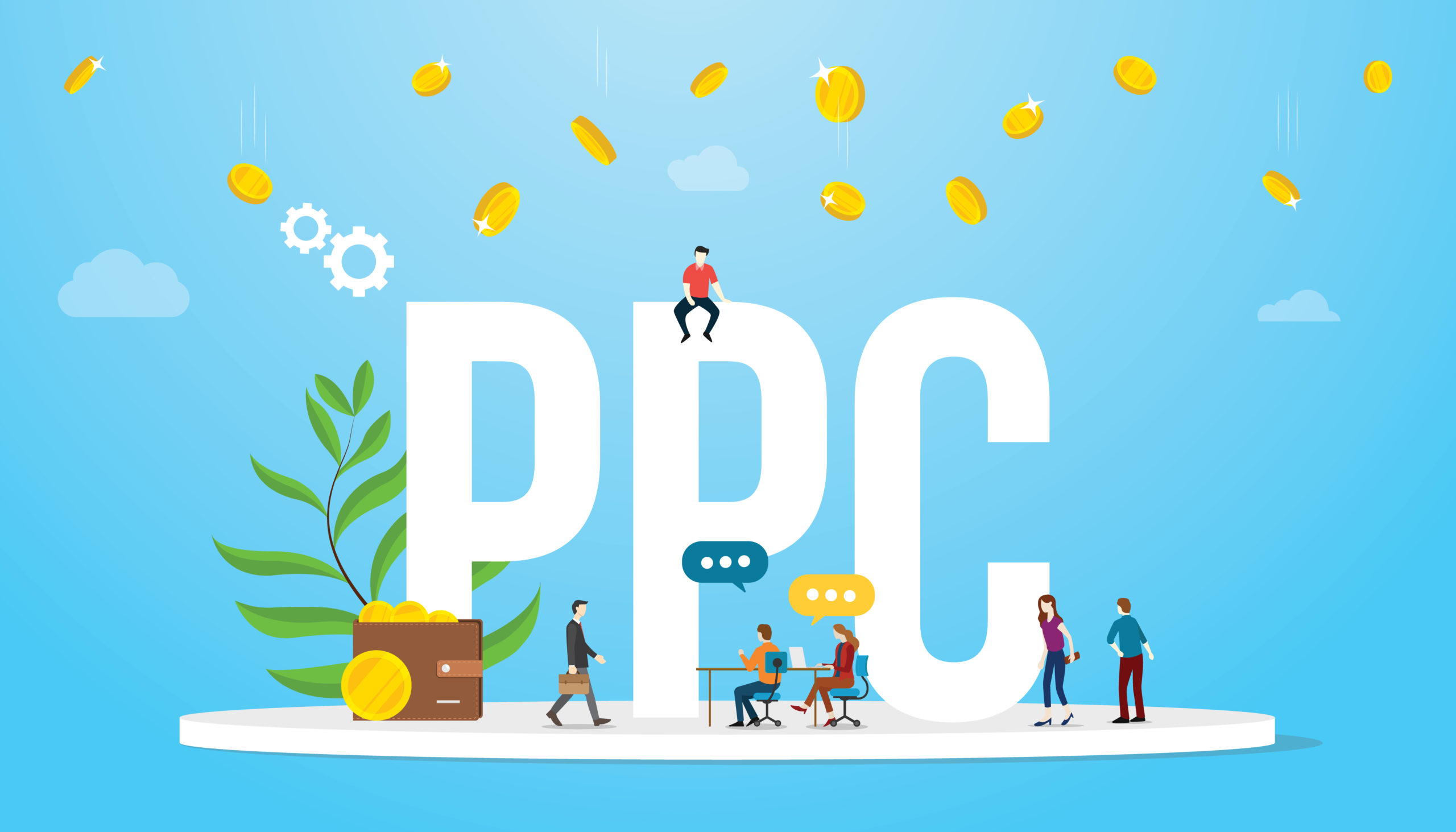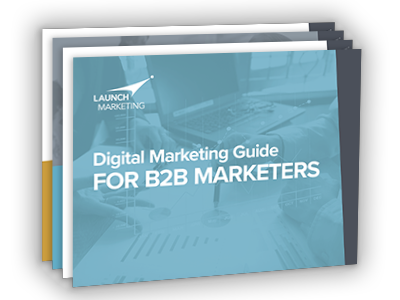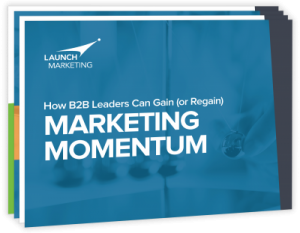
As the digital marketing landscape continues to grow, it’s crucial to take advantage of all the channels at your disposal, including pay-per-click (PPC) advertising. While some may view PPC as a B2C marketing exclusive, PPC can be an integral and valuable component of B2B digital marketing strategies—if executed correctly. With more than 70% of B2B buyers utilizing search engines to locate their next B2B purchase, you want to get quality PPC advertising in front of your potential buyers at the right time and with the right messaging. For a deeper dive into PPC and answers to some of the most pressing questions surrounding PPC advertising and best practices for B2B, we sat down with Launch Marketing executive team members Jeff Raymond, Shawna Boyce and Christa Tuttle.
1. What are the main reasons a B2B company should implement a PPC campaign?
Jeff: Brand awareness, demand generation and ecommerce effectiveness are probably chief among the top reasons to implement a PPC campaign. When used with the right audience, PPC can be very effective at generating leads by driving folks to your website and getting them interested in relevant content. From there, you have a higher chance of converting them into a lead that you can follow up with and nurture into an invested customer.
Shawna: You can also gain a lot of research and insight into other marketing efforts from running PPC campaigns, particularly as you learn what are the optimal keywords that your company should be focusing not only in your PPC efforts, but also in your content, brand messaging and even the communications that sales will have with current or potential clients. With a PPC campaign, you’ll be able to easily see which words are converting and resonating more, as well as how people initially perceive your brand or product offerings.
Christa: PPC can also be helpful from a brand message refinement standpoint, though this is something that you’ll gain over a longer period of time. As you start to collect valuable data points from your PPC campaign, the trends that these data points create is what will help inform your larger messaging and targeting strategies, from brand messaging and content to website design and development.
2. What platforms should B2B companies focus on when building their PPC campaign?
Jeff: The primary platform for PPC is Google, when you consider the vast majority of search traffic runs through Google. While Google, on its own, is a viable PPC platform, a lot of marketers see strong and informative results and synergy when they run ads in both Google and Bing at the same time. These primary search engines also have different kinds of platforms within their respective campaigns. For instance, you have the option to use display ads, text ads, video ads and all different kinds of sub platforms. This variety allows you to test a variety of formats to see what your audience is most drawn to and how concise or visual they want your ad targeting to be.
Christa: Facebook and LinkedIn are also good platforms for consideration. However, using these will depend on your budget, other audience platforms you’re utilizing and what these platforms can offer that helps you hone into your audience. In the B2B space, LinkedIn can be a great platform for ads, considering the large community of business leaders on LinkedIn. While these key stakeholders may not be the ones introducing your company or offering into the pipeline, they may be more inclined to endorse your business once it does reach their desk if they recognize your quality ads as a part of their LinkedIn feed. Facebook can also be a good channel for most businesses, if you know that who you’re targeting is spending time on Facebook and may considering business decisions via Facebook. With both, you’ll want to make sure you’re creating ads that are unique to the audience that is on each of these social platforms, including the tone and messaging of your ads.
Shawna: What platform you utilize will also be highly dependent upon your objectives are and what products or solutions you’re trying to promote, including thinking about how people want to engage with each. Before choosing a platform, be sure to conduct ample research into how each of the platforms operate, in terms of how large their audience is, how their targeting works and even how much money you’ll have to invest in order to get your ads in front of the right people. These will all be key factors for a long-term and successful PPC campaign.
3. What are some of the best practices for building or getting started with a successful PPC campaign? (i.e., design elements, audience targeting, etc.)
Christa: First and foremost, you need to know what people are searching for and where you want to reach them. Luckily, there’s a variety of different tools that can help you do the research to gauge which keywords might be the ones that are going to be more effective. Start by looking at the messaging that’s resonated well thus far in your content, so you have a better understanding of what keywords to prioritize in the key messages that you incorporate into the content portion of your ads. Then focus on the landing pages that accompany the ads, ensuring that the language and offerings of the landing pages are aligning with the language and messaging within your ads. Overall, your focus should be creating a cohesive strategy, tone and messaging across every touchpoint of your campaign, including your website.
Jeff: You want to be very specific and thoughtful with the language you use so that the right ads are being put in front of the right people. Adding negative keywords is also helpful, especially if you are displaying ads in a very specific market or industry space. That will help alleviate your ads populating in those keyword searches you don’t want them to appear for. Establishing a solid account structure is also very important, meaning that you’ve created definitively different ad groups that have highly relevant and targeted ads within them that match the theme and focus of their ad group. This way, you’re returning high-quality scores for ads that align with the searches performed by your target audience.
Shawna: You also want to be sure you have explored and dialed in on all your potential targeting options, including targeting your ads, depending on the time of year. If your audience has a particular buying season or you know that the end of a quarter is coming up and there may be additional budget spend available, create ads and ad groups that speak to these audiences and what they’re looking for during that particular period. Geographic targeting is another element you can roll into your PPC planning because you may want to only show your ads regionally or in a certain area. Conversely, you might consider sharing them nationally if your team evaluates an opportunity to engage with a larger audience. Be sure to take the time up front to really plan and narrow down your audience and the most effective ways to reach them. If you don’t properly assess your audience prior to starting your PPC campaign, you may end up with “wasted impressions,” or spending money on ads that are getting clicks from people outside of your target audience, which will only hurt your ROI.
4. How should B2B companies measure the ROI of their PPC campaign and when should they assess performance and ROI?
Jeff: It’s crucial to assess your PPC while it’s active, as opposed to waiting until your planned end date or the day you stop running your ads. One of the principle metrics to measure is conversions. As leads come in from your campaign, track how many of these leads are actually converting. If they are converting, how long are they taking to convert? If they’re not converting, you may need to refine some of the demographic and geographic targeting areas you established. You also want to track how your keywords are performing. Are there certain keywords that are generating leads for you and some that are not performing as well? Potentially you’ll find that there’s an ad group that’s not meeting expectations or the metrics your team established before the start of your campaign, so it may be time to abandon that ad group and focus on the ads that are performing well.
Shawna: What your team considers a “conversion” is also important. A conversion could mean they submitted their information within a form to request a consultation, or maybe they downloaded a whitepaper or eBook, or added themselves to a mailing list, or it could be that they bought something transactional if you have an ecommerce website. Defining all of those specific conversion points is important and accurately tracking your ads throughout the customer’s journey, from start to finish, is essential. These consumer clicks are important because someone who clicked on an ad pointing to an eBook on your website may end up in a different section and perform new search actions, and all these metrics should be captured and analyzed. Ultimately, you should track conversion rate over time to understand how the impressions you’re garnering are impacting broader goals such as the build of your funnel, the number of clicks you’re getting, etc. Optimization of your PPC campaign will be an ongoing process and should continue to improve over time, as long as you’re actively tracking your key metrics.
Christa: While conversions are an important goal, building and generating awareness can also be a reasonable goal and something that may benefit your organization to focus on. Your PPC campaign should have multiple goals, so it makes sense that your team will be paying attention to multiple metrics and data points. Taking into consideration the customer’s journey from their first search until they speak with someone directly at your company will be essential to building out a successful PPC campaign.
Looking for a total deep dive into digital marketing? Download the Digital Marketing Guide for B2B Marketers eBook.
See more of our #FourQuestionFriday series on Twitter!


There are no comments